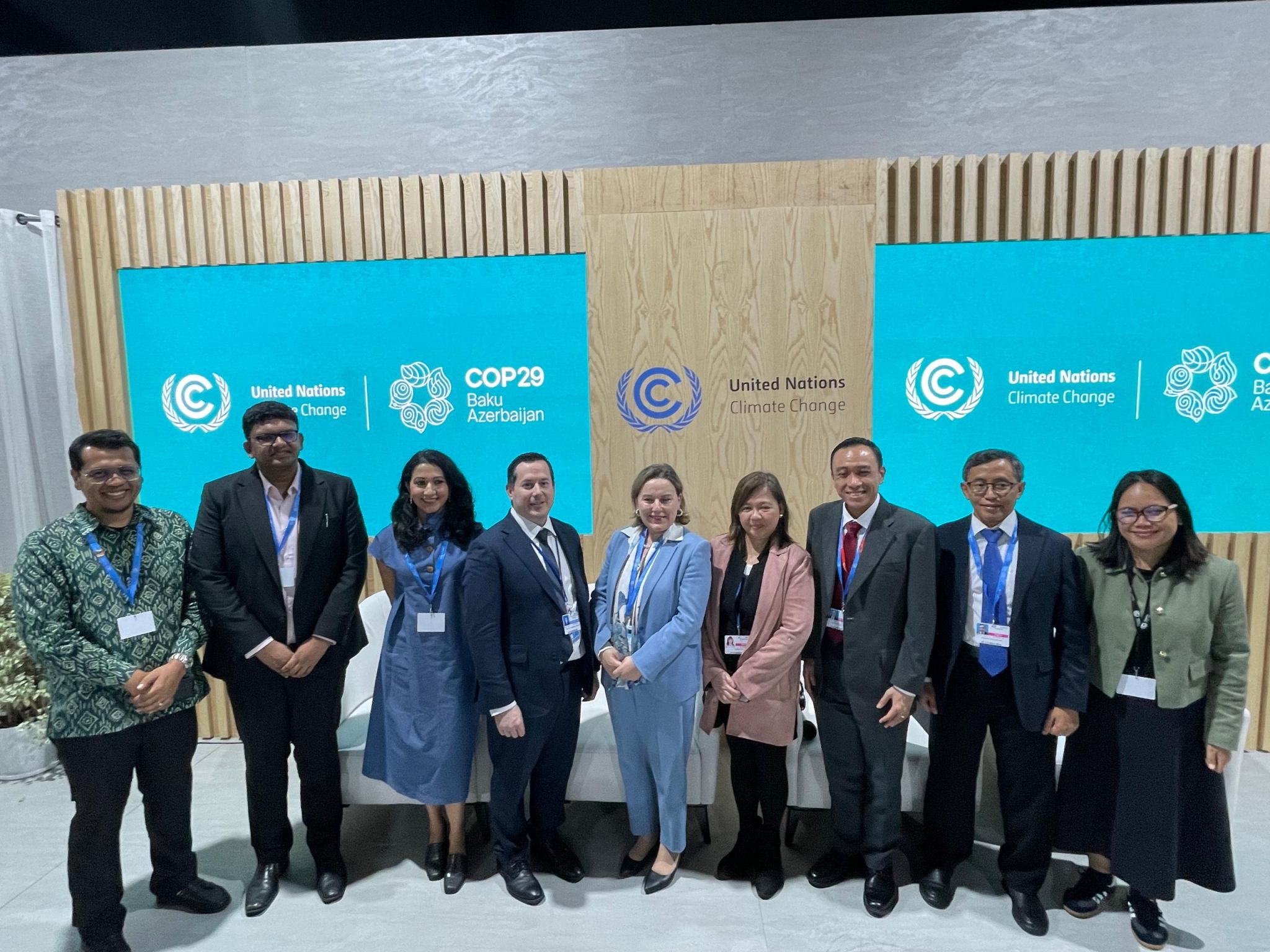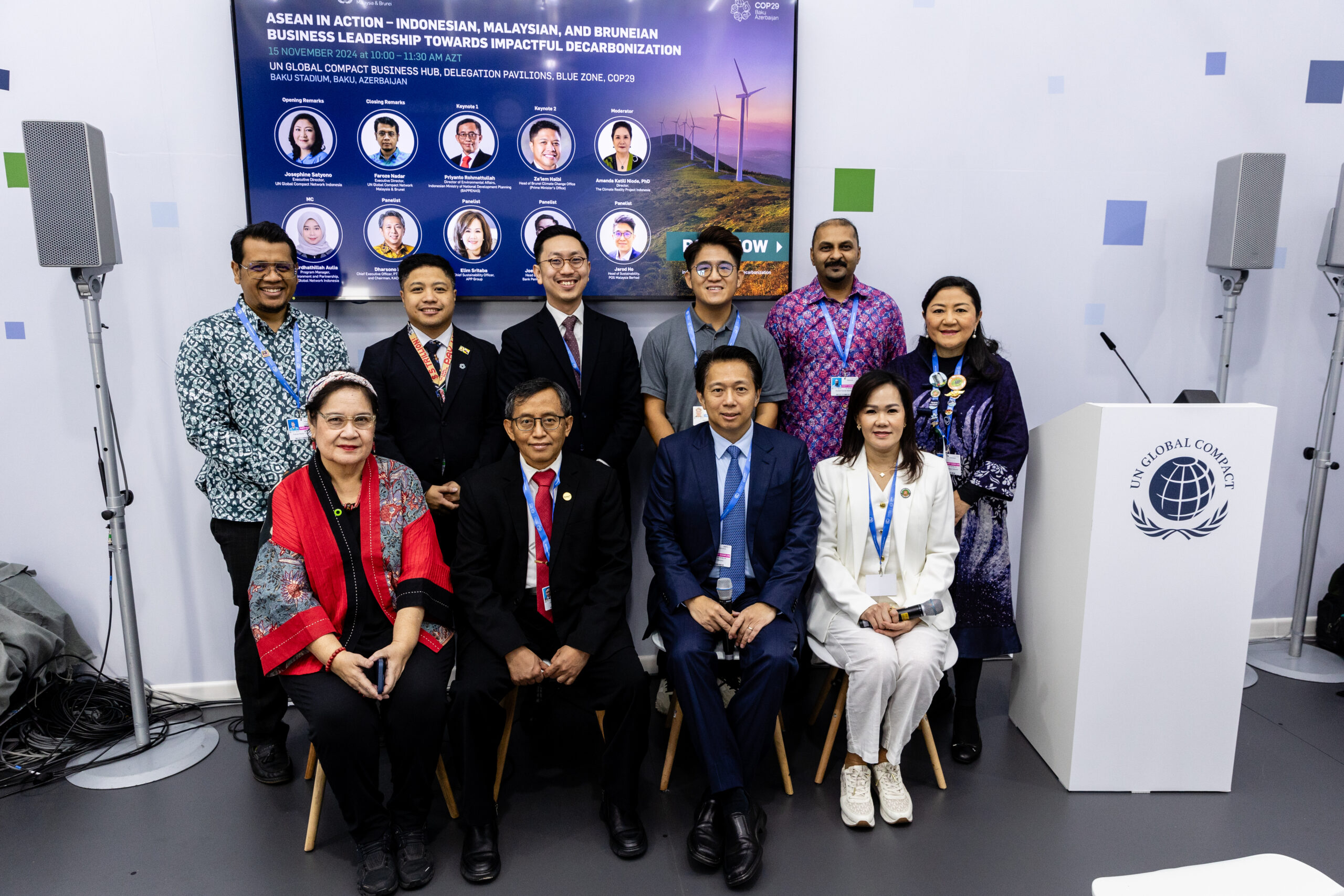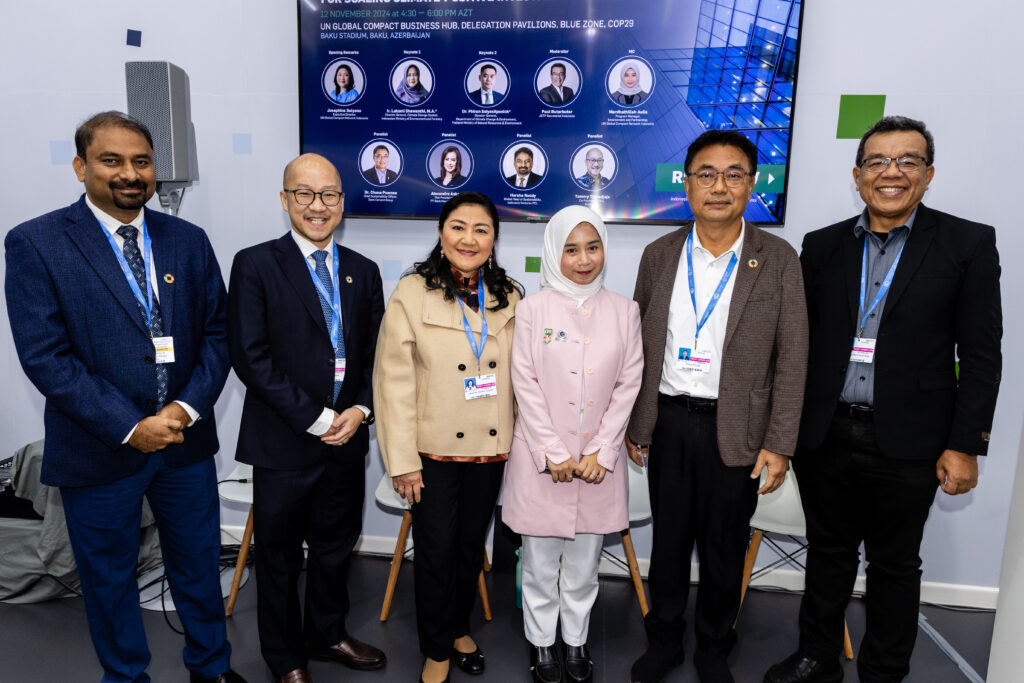
The “Innovative Technology and Risk Mitigation Strategies for Scaling Climate-Positive Investments in Emerging Markets” session was successfully held on 12 November 2024, at the UN Global Compact Business Hub, COP29, Baku Stadium, Azerbaijan. Co-hosted by the UN Global Compact Networks of Indonesia (IGCN) and Thailand (GCNT), the session explored how emerging markets can harness technological innovation and financial strategies to drive climate-positive investments, aligning with the overarching goals of COP29.
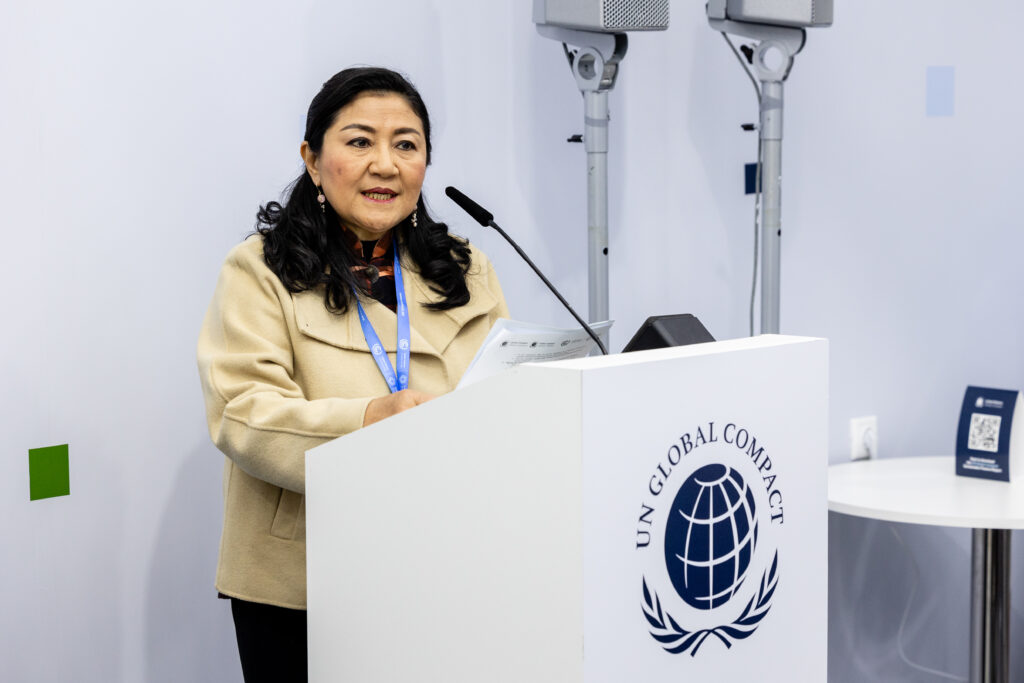
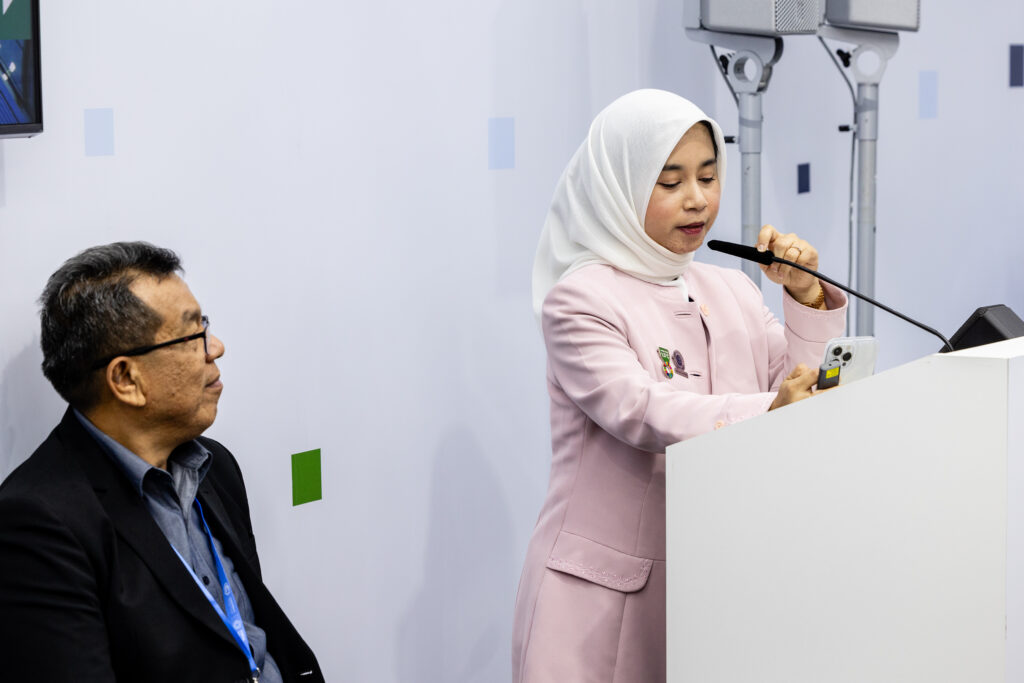
The event commenced with opening remarks from Josephine Satyono, Executive Director of IGCN, who emphasized ASEAN’s critical role in fostering sustainable growth and climate resilience. She highlighted the importance of cross-sector collaboration to tackle the unique challenges faced by emerging markets. Following her remarks, Mardhathillah Aulia, Program Manager for Environment and Partnership at IGCN, introduced the session objectives and the distinguished panel of speakers.
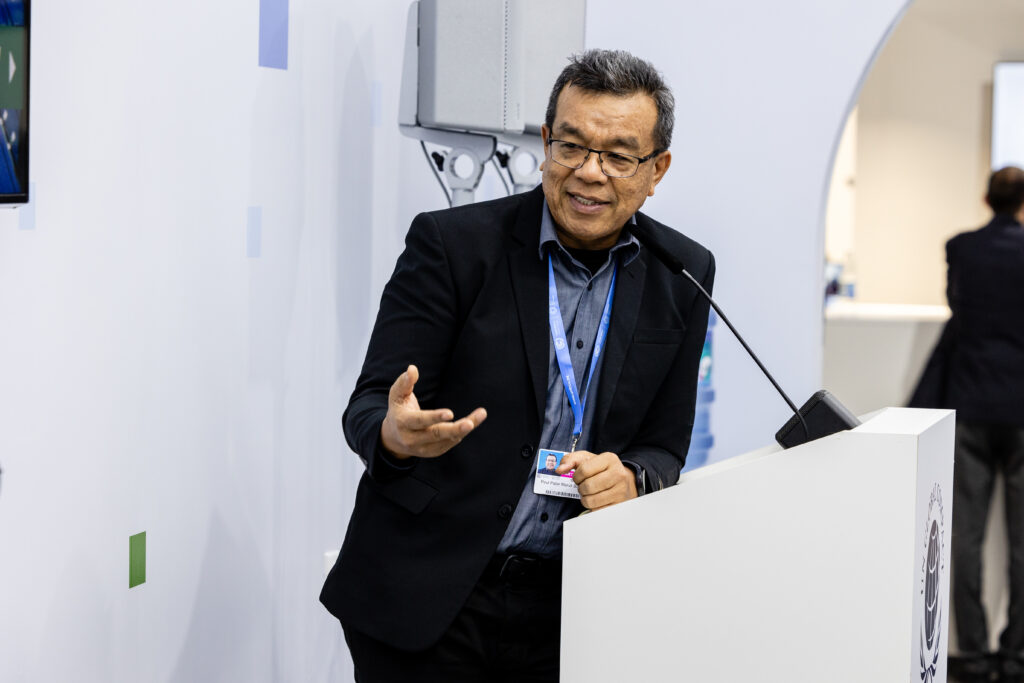
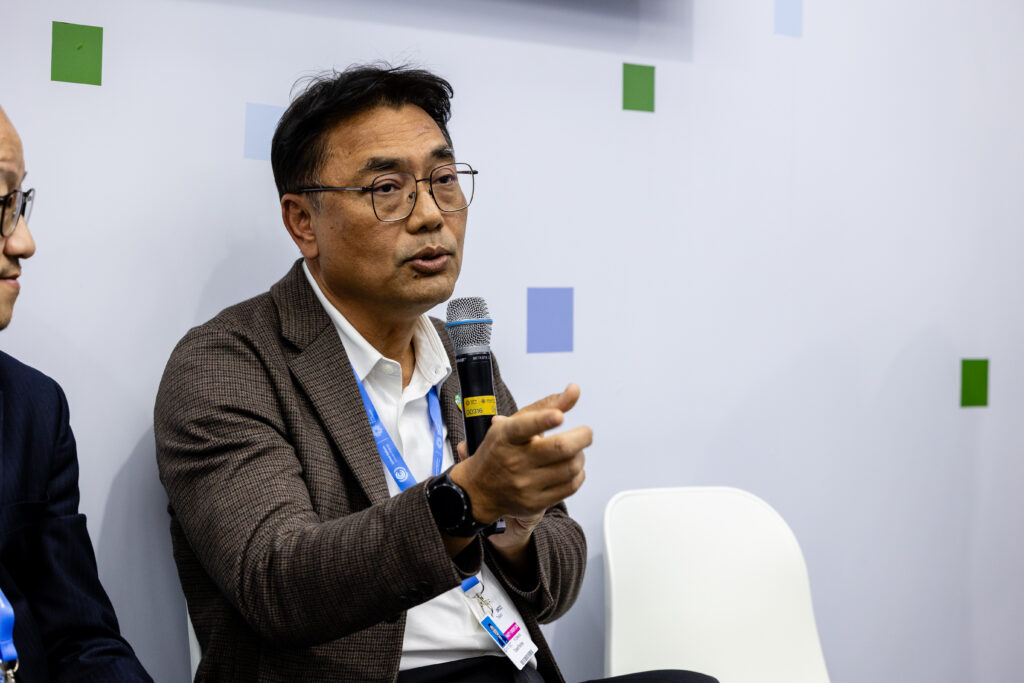
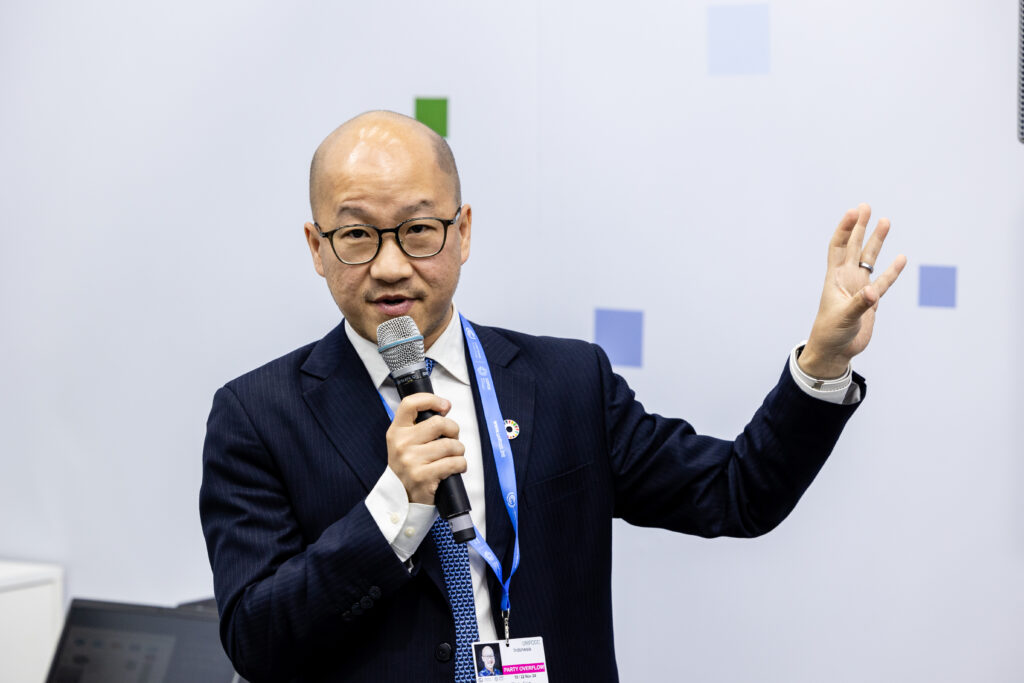
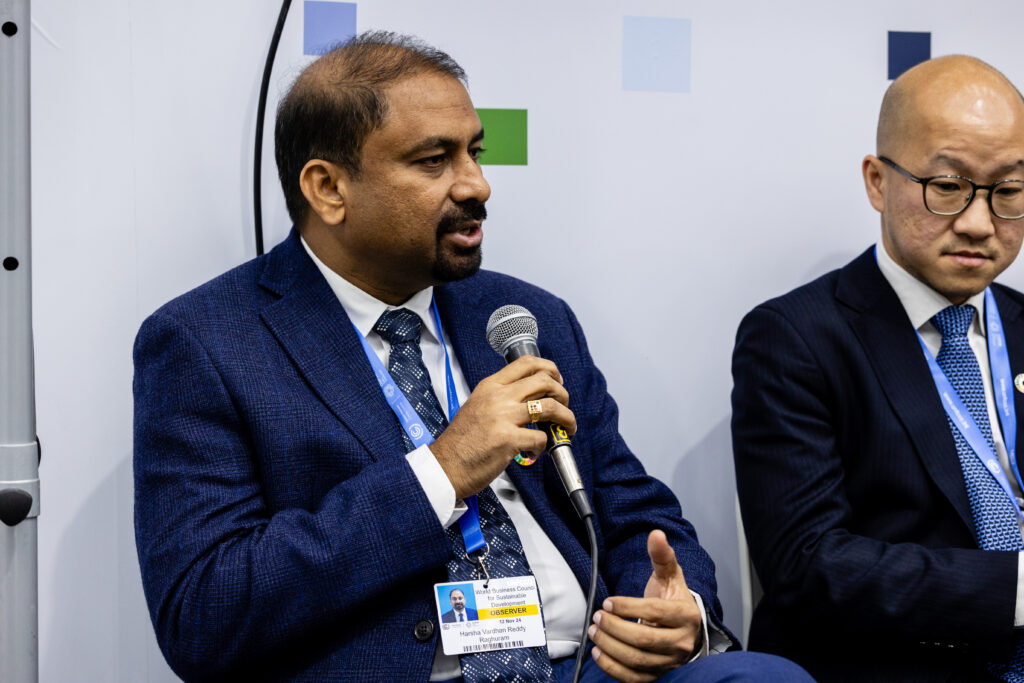
The panel discussion, moderated by Paul Butarbutar, the Head of the JETP Secretariat Indonesia, brought together leading voices from various industries to share insights and best practices. Dr. Chana Poomee, the Chief Sustainability Officer of Siam Cement Group outlined innovative decarbonization technologies, such as low-carbon cement and biochar, that are paving the way for sustainable industrial practices. Harsha Reddy, the Global Head of Sustainability of Indorama Ventures PCL detailed the company’s ambitious targets, including recycling 100 billion PET bottles annually by 2030, and its broader efforts to lead in the circular economy space. Tommy Tjiptadjaja, the Co-Founder and CEO of Greenhope.co showcased the transformative potential of cassava-based biodegradable materials, which significantly reduce CO2 emissions while driving social impact in local communities.
Throughout the discussion, key themes emerged, including the role of innovative technologies in addressing climate challenges, the importance of financial instruments like climate resilience bonds to mitigate investment risks, and the necessity of fostering effective public-private partnerships to scale climate-positive initiatives. The panelists provided concrete examples of successful projects and collaborations, inspiring participants to take bold actions in their respective sectors.
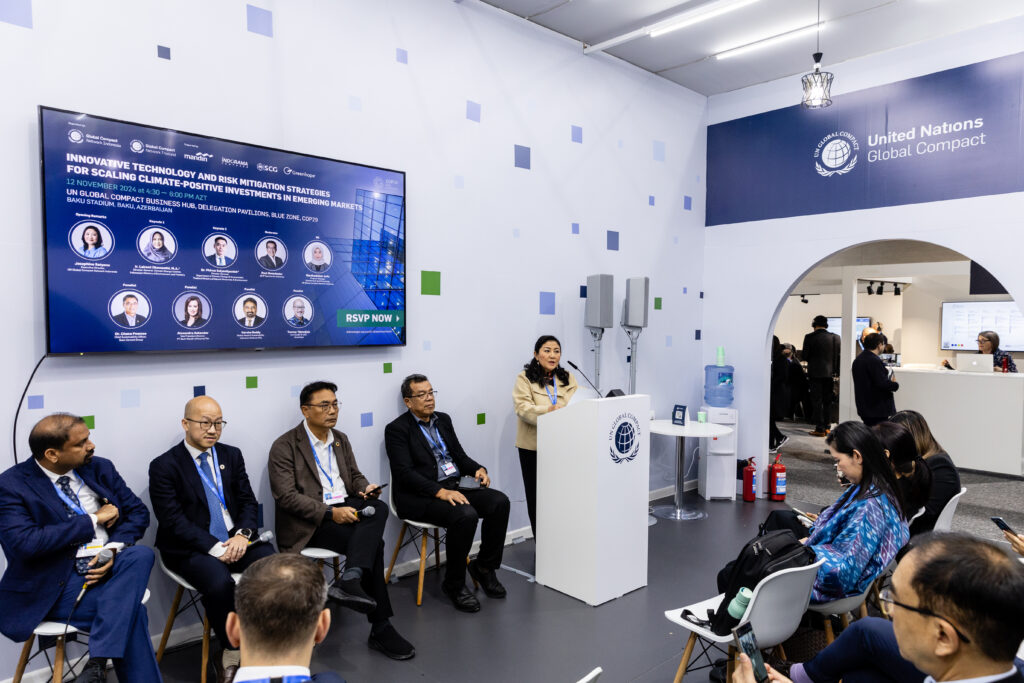
Closing the session, Josephine Satyono summarized the key takeaways and reiterated the call for increased collaboration and innovation to achieve sustainable development goals. Her remarks left a lasting impression, inspiring attendees to integrate the session’s insights into actionable strategies for driving climate resilience and investment in their regions.
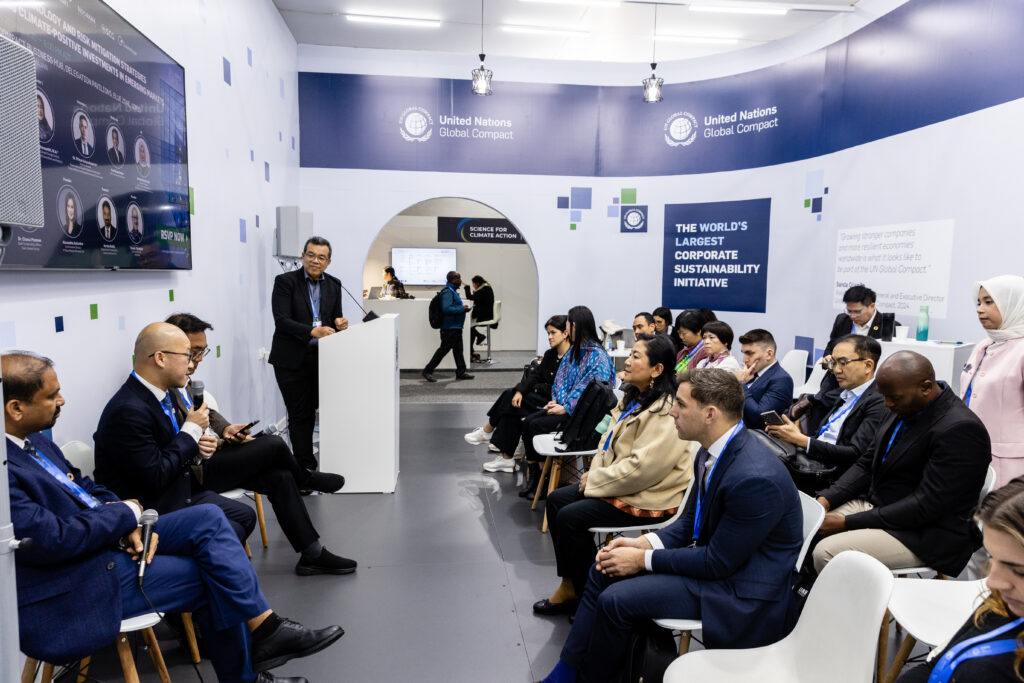
The session demonstrated ASEAN’s pivotal leadership in advancing sustainability and provided a practical roadmap for leveraging technology and finance to meet global climate objectives. As a key highlight of COP29, it reinforced the urgency of aligning efforts to tackle climate challenges in emerging markets effectively.


